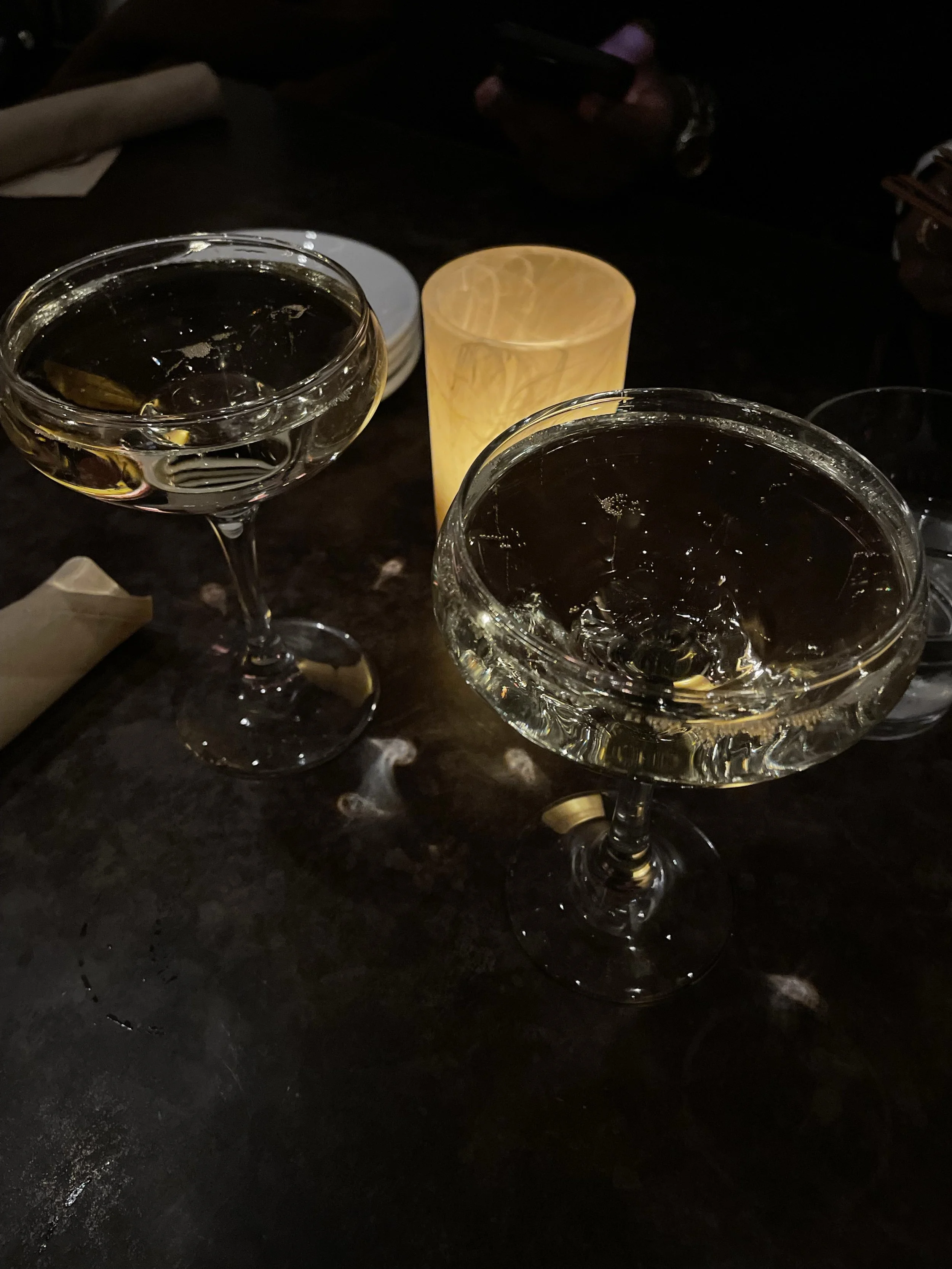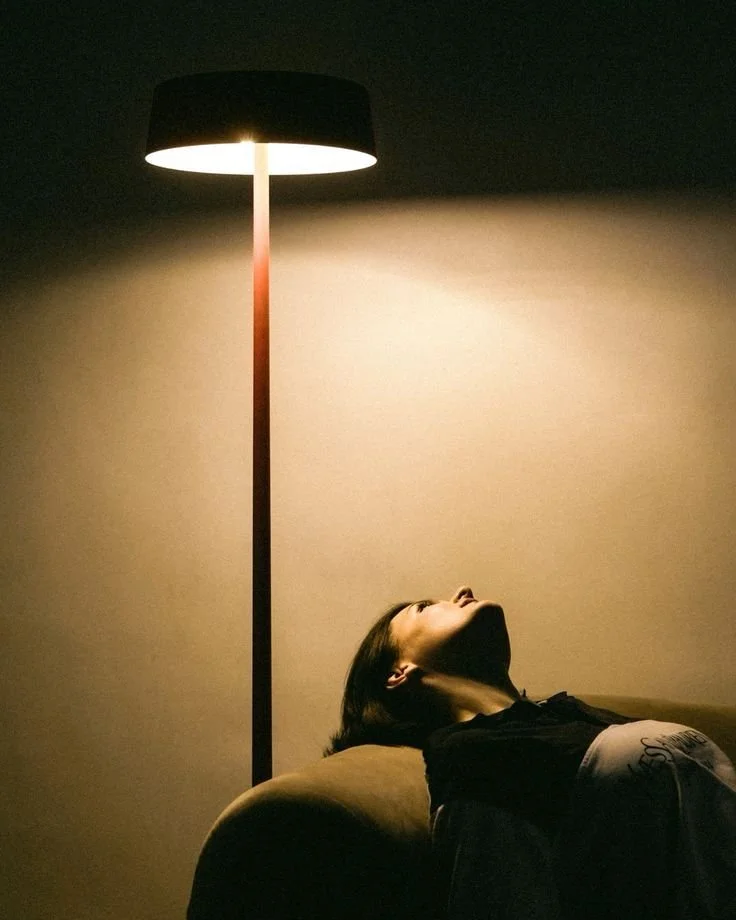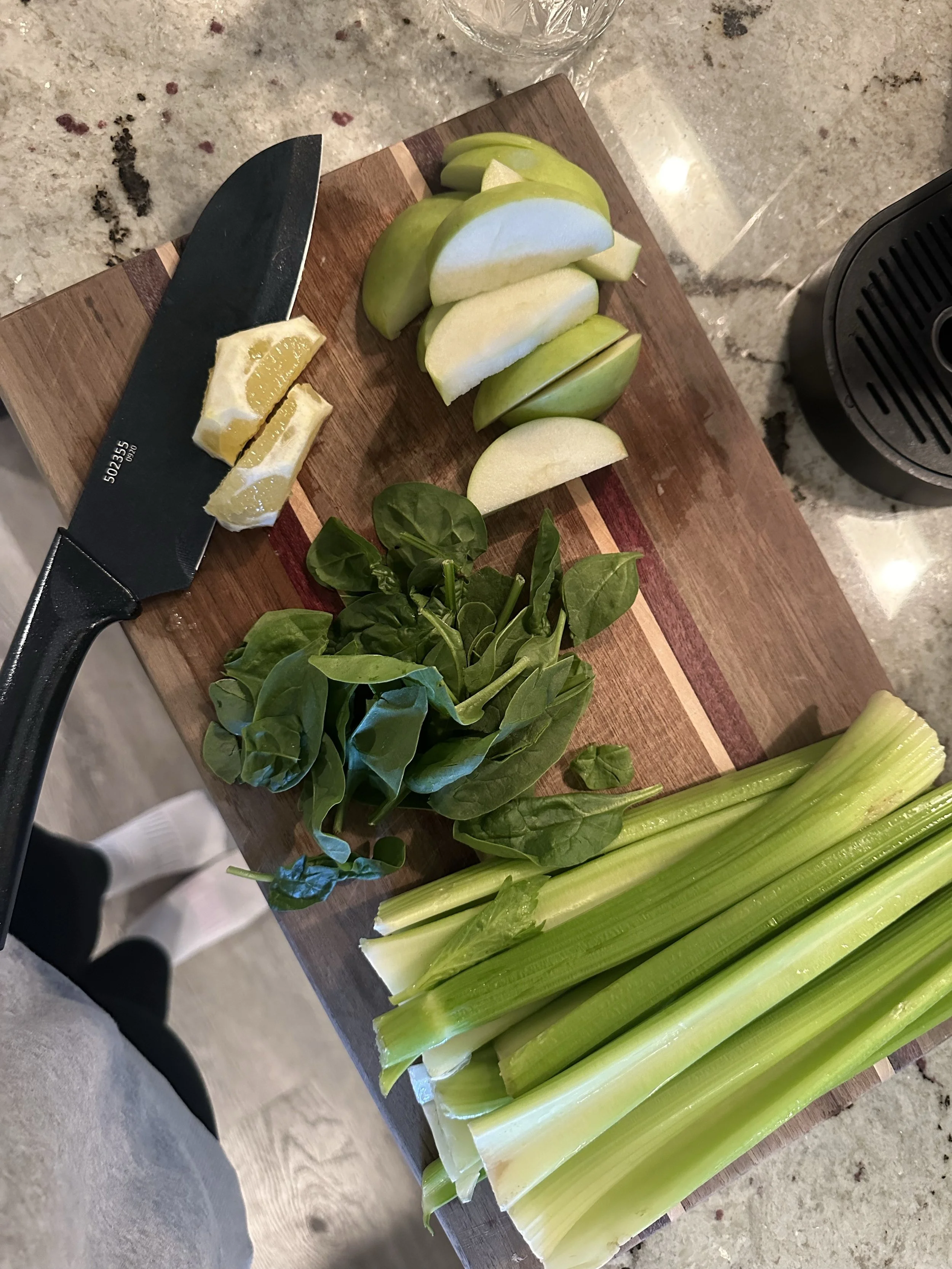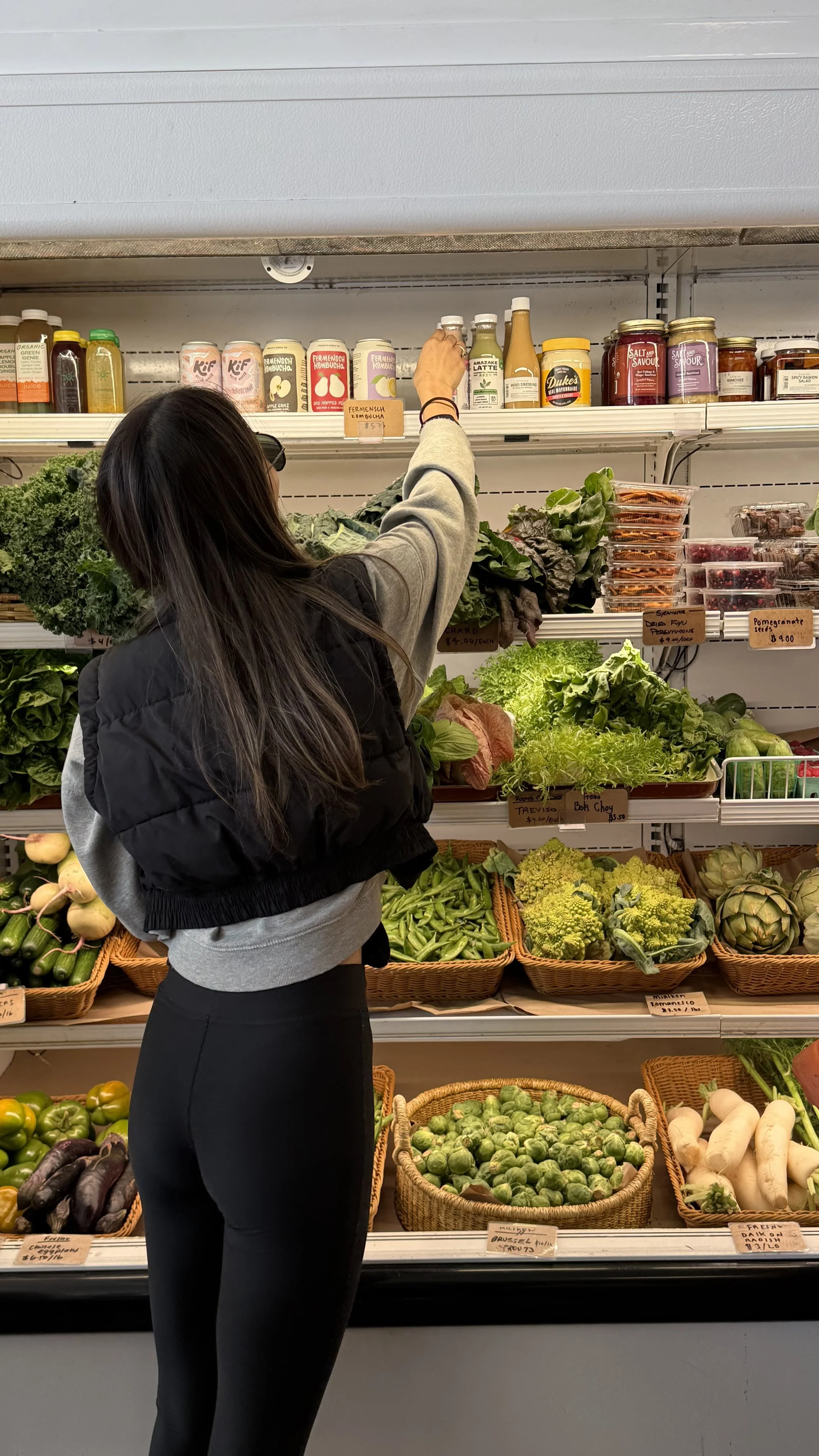Alcohol Is the Opposite of Wellness (Yes, Even Your Natural Wine)
You're healing your gut with bone broth and destroying it with wine. The wellness world won't acknowledge this contradiction. Your body will.
Alcohol is fundamentally incompatible with wellness, regardless of how it's marketed. Even organic, natural, or "clean" alcohol disrupts your hormonal balance, damages your gut microbiome, interferes with sleep architecture, amplifies anxiety, and blocks the deeper presence everyone claims to seek. The "mindful drinking" movement is wellness-washing a neurotoxin. Every glass actively prevents the healing you're working toward in every other area of your life.
The Contradiction You're Living With
Morning: green juice for gut health. Evening: natural wine for "balance."
Weekend: yoga at 9am, bottomless mimosas at 11.
Your favorite wellness influencer posts about hormone balancing between cocktail recipes. The clean beauty founder shares her hangover skincare routine. Everyone pretends this makes sense.
But your Sunday morning body knows better.
You feel it in the anxiety that wine was supposed to quiet but somehow made worse. In the exhaustion that no amount of supplements can touch. In the bloating you blame on gluten when it was actually the three glasses of organic red you had two nights ago.
The mental gymnastics are more exhausting than the hangovers. Calling poison "self-care." Treating a neurotoxin like it's part of your healing practice. Pouring the cause of your problems into a glass and pretending the glass being organic changes anything.
What's Actually Happening Inside
That "clean" wine you carefully selected is doing the same thing to your body that cheap vodka does. The organic certification doesn't change the chemistry.
Your hormones—the ones you're trying to balance with seed cycling and expensive supplements—alcohol throws them into chaos. Estrogen spikes unnaturally. Progesterone crashes. Cortisol floods your system and stays elevated for days afterward. That hormonal disruption you're treating with adaptogens and acupuncture? You're pouring the cause into a wine glass each night.
Your gut lining, the one you're supporting with bone broth and probiotics, alcohol punches holes in it. Creating intestinal permeability that lets toxins leak into your bloodstream. The inflammation you're trying to heal with turmeric and elimination diets gets worse with every drink. The bloating, the brain fog, the skin issues—check what you drank this week before blaming everything else.
Even one glass blocks REM sleep. Not disrupts—blocks entirely. You're unconscious, not resting. Your brain can't clean itself of metabolic waste. Can't process emotions or consolidate memories. Can't do any of the restoration that actual sleep provides. You wake up tired because you never actually slept, just spent eight hours metabolizing poison.
And the anxiety—the background hum of unease that never quite leaves, the social discomfort you think you need liquid courage for—alcohol created it. Your nervous system trying to recalibrate from a substance that floods you with artificial relaxation followed by actual stress. The thing you're using to manage anxiety also makes it worse.
The Clarity Culture Fears
Sobriety in your twenties marks you as suspicious.
"Are you pregnant?" "Are you on antibiotics?" "Are you okay?" "Are you fun?"
The questions reveal everything. We've made intoxication mandatory for social acceptance. Not drinking requires explanation, justification, defense. As if choosing clarity over poison is the choice that needs defending.
You know people who hide their sobriety. Who hold drinks they don't sip. Who lie about medication because it's easier than explaining they simply don't want to disrupt their sleep, spike their anxiety, and undermine their health anymore.
The wellness world should celebrate this choice. Instead, it repackages intoxication with adaptogens and electrolytes. Sells you hangover patches and recovery supplements. As if adding functional mushrooms to poison makes it medicine. As if you can biohack your way to healthy with a body trying to heal while you regularly poison it
The influencers posting green smoothies in the morning and wine in the evening aren't showing balance. They're showing you exactly how normalized the contradiction has become.
Why "Moderation" Keeps You Stuck
"Everything in moderation" is alcohol's greatest rebrand.
Imagine someone saying they smoke cigarettes "mindfully." Or do cocaine "in moderation." You'd see through it immediately. But wrap alcohol in wellness language—natural, organic, biodynamic—and suddenly we're negotiating with a substance that disrupts every system we're trying to heal.
Moderation means regularly disrupting your hormones. Consistently inflaming your gut. Repeatedly blocking your sleep. Continuously spiking your anxiety and dampening your clarity. Just... moderately.
The substance creates the exact problems it temporarily numbs. The anxiety that needs wine? Alcohol intensifies it. The stress that needs release? Alcohol amplifies it. The vulnerability you can only access when drinking? That should tell you something about what's being avoided when sober.
Your body trying to heal while you regularly poison it is like trying to fill a bathtub with the drain open. You can do all the right things—the supplements, the therapy, the morning routines—but if you're still drinking, you're undermining everything.
What Actually Happens When You Stop
First, your sleep returns. Real sleep, with dreams and true restoration. You wake up rested for the first time in years and realize how long you've been operating in a fog.
Your anxiety recalibrates. Without alcohol's chaos-calm-chaos cycle, your nervous system remembers its baseline. That constant background hum of unease—the thing you thought was just your personality—begins to quiet. You discover you're naturally calmer than you thought.
Your gut begins to heal. The inflammation subsides. The bloating that wouldn't respond to any elimination diet finally releases. Your skin clears. Your energy stabilizes. Not fluctuating wildly from depletion to recovery but steady, reliable, actually yours.
Your intuition sharpens. Those gut feelings you've been drowning in wine start speaking clearly. You realize how much wisdom you've been numbing, how many signals your body was sending that you couldn't hear through the fog.
The clarity is almost startling. You notice what's been missing: actual connection. Conversations without alcohol feel real for the first time—you're present, remembering, responding to what's actually being said instead of performing connection through shared intoxication.
You start asking different questions. What does it mean that you could only say certain things when drunk? That vulnerability required chemical assistance? That fun felt impossible without loosening up first? That pleasure needed to be borrowed from a bottle?
The answers reveal something about what you were avoiding. About the difference between intentional joy and numbed performance. About whether you were connecting with people or just bonding over shared fog.
Real intimacy—the kind you can remember the next day, the kind that doesn't require liquid courage to access—turns out to be deeper than anything you experienced drunk. Harder sometimes, yes. But real.
And then the deeper gift: you discover what you were numbing. Not in a traumatic rush but in a way you can finally address. The discomfort you were medicating with wine—you can heal it now instead of managing it. The social anxiety—you can build actual ease instead of borrowing it from a bottle. The stress—you can address its source instead of temporarily escaping it.
The Timeline No One Mentions
The first week without alcohol feels long. Your body is adjusting. Your nervous system recalibrating. Social situations feel different because you're actually present for them.
By week two, your sleep improves noticeably. You wake up actually rested. The morning fog lifts.
Week three, your gut starts healing. The inflammation subsides. Energy is steady.
By month three, people start commenting that you look different. Clearer. More present. Your skin has changed. Your eyes are brighter. You radiate something you didn't before.
Six months in, you can't imagine going back. Not because sobriety is hard but because you finally feel like yourself. The real version, not the version trying to make it through regular intoxication.
And yes, there are practices that make this easier. Ways to navigate social situations, responses that feel natural, strategies for the harder, earlier parts. But first, you have to choose to do it.
The Permission You're Waiting For
You don't need a reason to not drink. You don't need to be pregnant, on medication, or in recovery. You don't need to hit a bottom or have a problem.
"I don't drink" is a complete sentence.
Your choice to preserve your clarity isn't boring. It's not sad. It's not missing out. It's revolutionary in a culture that profits from your fog.
The friends who can't connect with you sober? Who don't know what to do with you without drinks involved? They're showing you what the relationship was actually built on. Not because they're bad people, but because you were bonding over shared intoxication instead of actual intimacy.
Real connection doesn't require shared fog. Real vulnerability doesn't need chemical assistance. Real pleasure—the kind that comes from presence, from honest conversation, from unfiltered joy—can't be borrowed from a bottle. It has to be built.
The wellness world that's selling you hangover cures and "clean" alcohol alternatives is invested in keeping you stuck in the contradiction. Because if you stopped drinking entirely, you'd stop needing half the products they sell. The supplements to manage your hormones. The gut healing protocols. The sleep aids. The anxiety management tools.
Your body knows how to balance itself when you stop regularly poisoning it.
What You Already Know
You've felt it every Sunday morning. Every Monday that you needed to "recover" from the weekend. Every time you read a "wine is self-care" post and something inside you clenched.
You've felt it in the way one glass always becomes three. In the way you can't seem to "moderate" the way wellness culture insists you should. In the way sobriety sounds boring until you actually try it and realize it's the opposite—it's the first time you've been fully alive in years.
Your body has been trying to tell you through the disrupted sleep, the hormonal chaos, the gut issues that won't heal, the anxiety that intensifies. Through the fog you can't quite shake and the exhaustion you can't quite explain.
The efforts aren't failing. The supplements aren't wrong. The elimination diet wasn't missing the point. You've been doing everything right except the one thing that undermines everything else.
Maybe the question isn't "what can I drink that's healthier?" Maybe it's "why does drinking have to be part of health at all?"
The answer might free you from more than hangovers. It might free you into the clarity, presence, and vitality you've been seeking in every other area of your life.
Your body is waiting. It's been waiting. Ready to show you what healing actually feels like when you stop pouring poison on top of your efforts.
What Changes When You Stop
Sleep that actually restores you instead of leaving you foggy and depleted.
Anxiety that recalibrates to its natural baseline instead of being amplified by alcohol's chaos-calm-chaos cycle.
Gut healing that finally takes hold without constant re-injury from drinking.
Hormones that balance naturally without the disruption of regular intoxication.
Energy that stays steady instead of oscillating between depletion and recovery.
Clarity that lets you feel everything—and the capacity to handle what you feel without numbing it.
Connection that's real, not performed. Vulnerability that doesn't require chemical assistance. Conversations you actually remember.
The discovery of what you were numbing, and finally the ability to heal it instead of just managing it.




